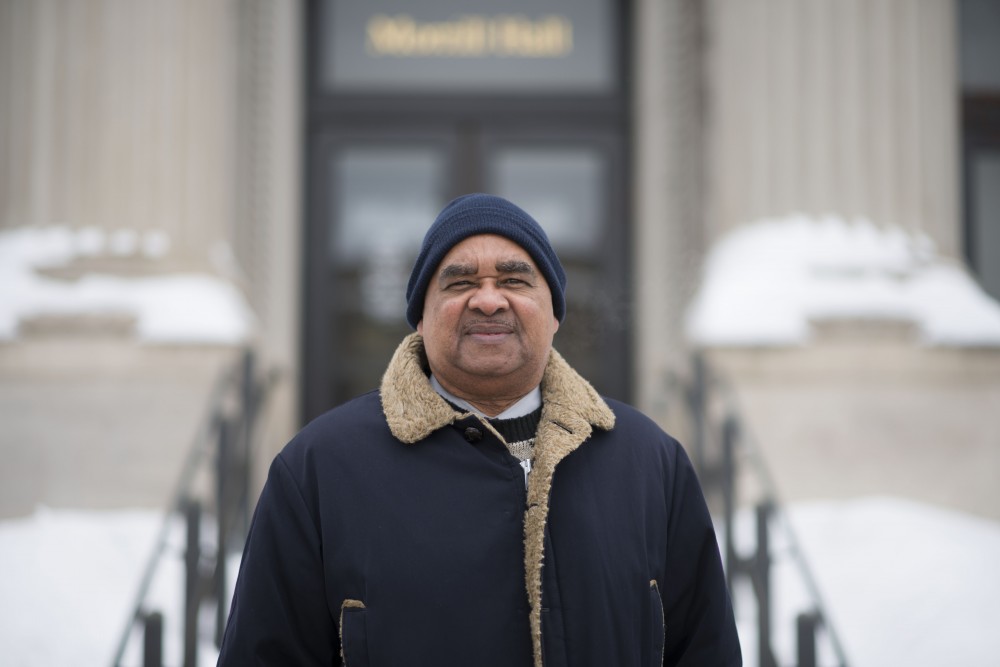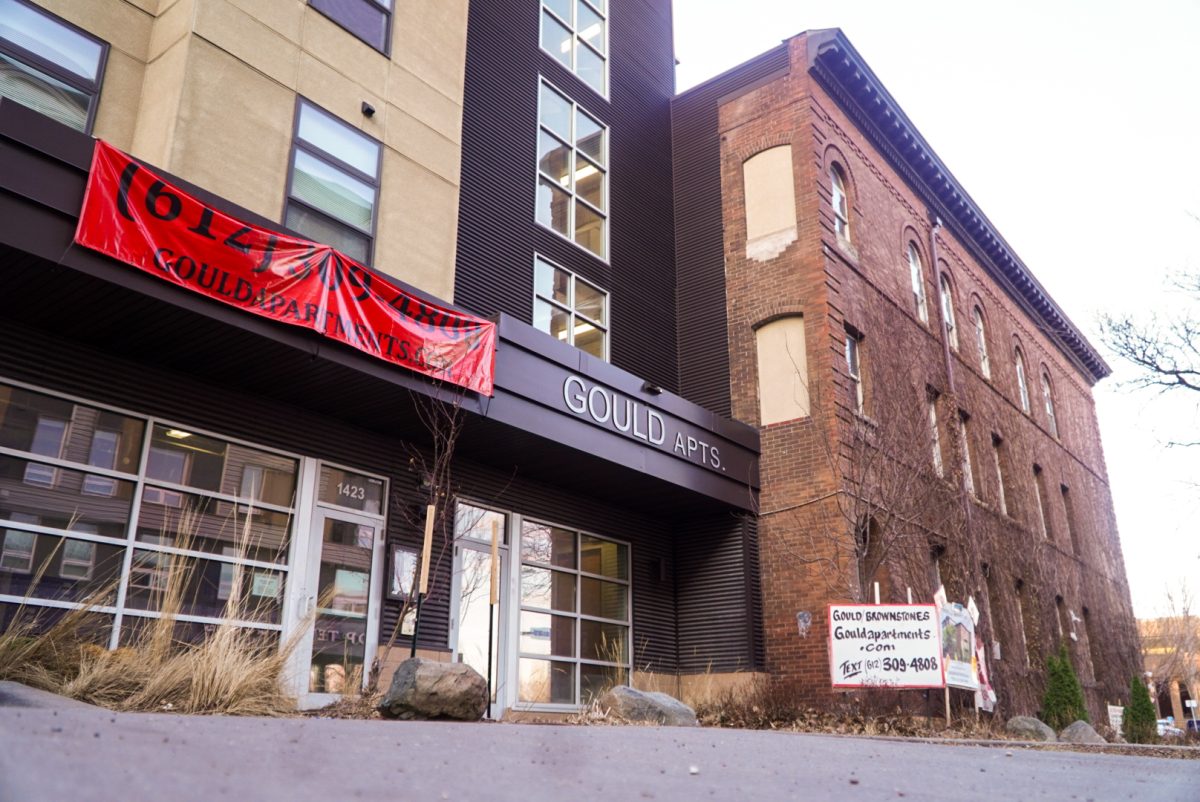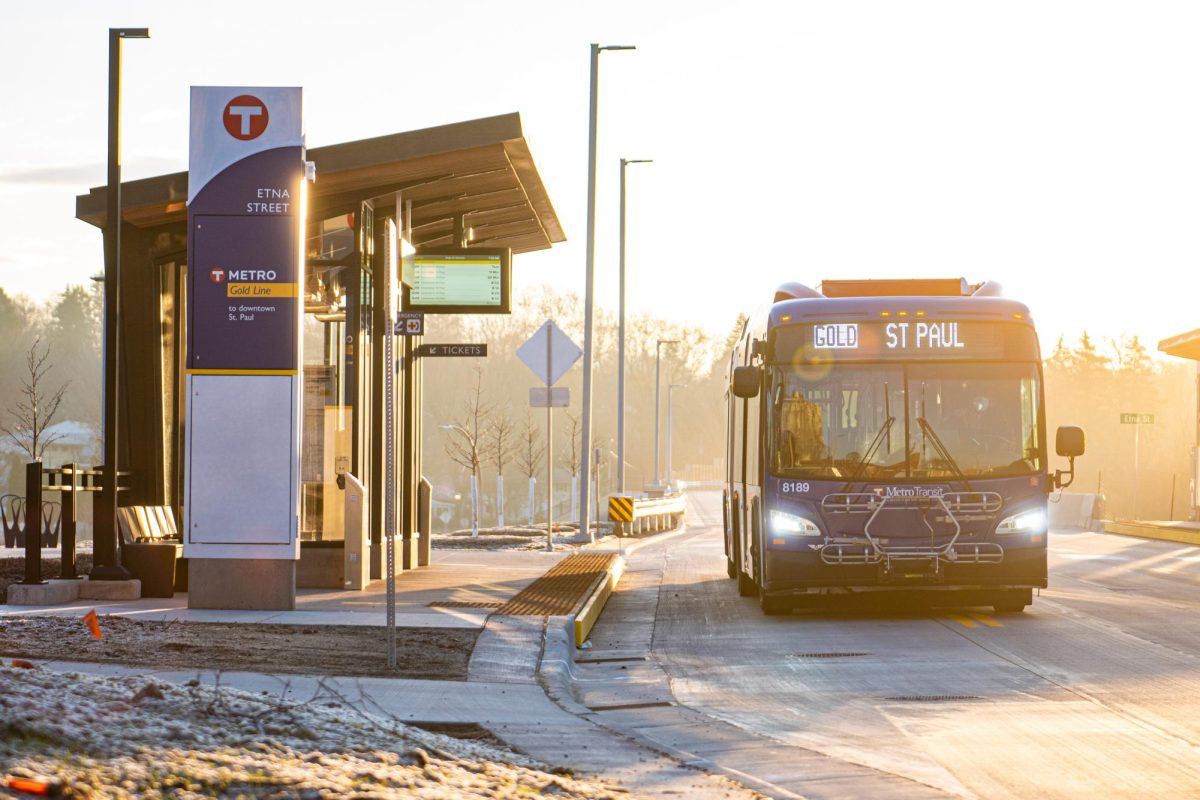The University of Minnesota’s African American and African studies department hosted a teach-in Monday to kickoff a yearlong series of events that will examine the University’s history, present and future.
Fifty years ago, a group of University of Minnesota students met with then-University President Malcolm Moos to present a list of demands: establishment of an Afro-American studies program, funding for a black conference and development of a Martin Luther King Jr. scholarship. Unsatisfied with their meeting, the students entered an administrative office in Morrill Hall, permitting people to leave but not enter.
The 24-hour takeover ended with the University agreeing to the students’ demands, which led to the creation of the Department of African American and African Studies, funding for the black conference and increased support for black students on campus.
Hearkening back to the takeover, over 200 high school students and University and community members gathered in Coffman Union Monday for the first in a series of three teach-ins. Teach-in 101: Understanding Our Legacy served as a kickoff for a series of events celebrating the 50th anniversary of the takeover and the creation of the African American and African studies department.
Speakers, artists and panels led the event, which examined the creation of the department, the context out of which it grew and its implications for the present and future.
Ahead of the historical takeover, the Afro-American Action Committee delivered a list of demands to the University following the assassination of Martin Luther King Jr. in 1968. The demands aimed to increase financial and student support for black students on campus, improve accessibility to the University and diversify curriculum, said Horace Huntley, a leader of the Morrill Hall takeover and retired professor at the University of Alabama-Birmingham.
The protest was a culmination of nearly a year of unrest and unmet student demands. Frustrated by a lack of University action in meeting their demands, about 40 students led by the Afro-American Action Committee met with Moos and presented a simplified list of demands, Huntley said.
“The demands had been issued almost a year prior. And there had been discussion from time to time about nothing being done, so at that point we had decided the only way something was going to be done was if someone pushed the issue, so we pushed the issue,” Huntley said.
Unsatisfied with Moos’s response, the group refused to leave Morrill Hall, staging a 24-hour takeover of the Bursar Office, Huntley said.
“We felt there was a need to make a huge statement about what was happening and how we felt about it,” he said.
The demonstration, which remained peaceful, resulted in some financial damages. Huntley, along with Rosemary Freeman Massey and Warren Tucker Jr., were indicted for aggravated criminal damage to property, rioting and unlawful assembly.
“You have to be able to speak truth to power, although there will be certain consequences to that,” said Huntley, one of the first University students to graduate with an African American and African studies degree.
At the time of the takeover, fewer than 90 black students studied at the University, said Rose Brewer, a professor in the African American and African studies department. Today, there are about 1,500 black undergraduate students enrolled at the Twin Cities campus — approximately five percent of the undergraduate population.
Ongoing demands by the department include increasing the number of black faculty, staff and students on campus, increasing accessibility for underrepresented students and offering diverse perspectives in University curriculum.

“There was a series of issues that the students had taken on and I would say … those are still burning issues today,” said Brewer. “College campuses all over this country are facing issues that these black students 50 years ago put on the table.”
Isabella Rolland, a University junior who works in the African American and African studies department, echoed Brewer, saying current students still face many issues highlighted in the takeover.
“I think it’s really significant to hear … the struggles people have gone through in the past and how it’s similar to struggles now, especially in terms of representation,” she said.
High school students enrolled in a college-level African American studies course attended the event to earn credit for University coursework. Brewer said this is one way the University works to improve accessibility to the school.
Monday’s teach-in focused on providing historical context to the Morrill Hall takeover, while the next two will focus on the present and future campus climate and include underrepresented groups like the LGBT community and women, Rolland said.
“Students 50 years ago understood that the demands of the current moment certainly express, from my perspective, a vision that was prefigured — you want justice, you want fairness, you want equity,” Brewer said. “These are issues that we haven’t been able to resolve in this country and so they are burning ones … you can struggle for these things, that freedom is a constant struggle until we’re free.”









